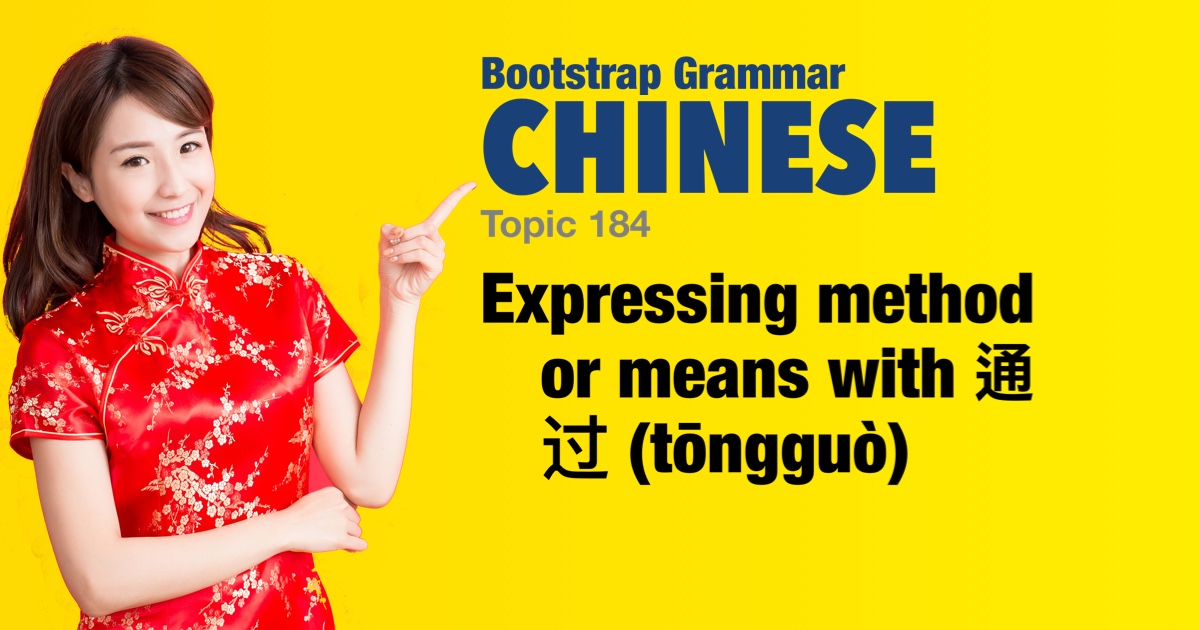Chinese grammar - Expressing method or means with 通过 (tōngguò) |
|||
|
|||
The Chinese preposition 通过 (tōngguò) is used to express that something is achieved 'by' or 'through' a particular means or method. The pattern is: [subject] + 通过 + [Method/Means] + [verb]. |
| Examples: | |
|
他通过努力工作获得了成功。
tā tōngguò nǔlì gōngzuò huòdé le chénggōng. He achieved success through hard work.
|
|
|
我们通过互联网学习中文。
wǒmen tōngguò hùliánwǎng xuéxí zhōngwén. We study Chinese through the internet.
|
|
|
她通过朋友介绍认识了他。
tā tōngguò péngyǒu jièshào rènshi le tā. She met him through a friend's introduction.
|
|
|
他们通过合作解决了问题。
tāmen tōngguò hézuò jiějué le wèntí. They solved the problem through cooperation.
|
|
|
他通过读书丰富了知识。
tā tōngguò dúshū fēngfù le zhīshi. He enriched his knowledge through reading.
|
|
|
我们通过讨论找到了解决方案。
wǒmen tōngguò tǎolùn zhǎodào le jiějuéfāng'àn. We found a solution through discussion.
|
|
|
他通过写作表达了自己的想法。
tā tōngguò xiězuò biǎodá le zìjǐ de xiǎngfǎ. He expressed his ideas through writing.
|
|
|
你可以通过这个网站提交申请。
nǐ kěyǐ tōngguò zhè#ge wǎngzhàn tíjiāo shēnqǐng. You can submit the application through this website.
|
|
|
他们通过共同努力实现了目标。
tāmen tōngguò gòngtóng nǔlì shíxiàn le mùbiāo. They achieved the goal through joint efforts.
|
|
|
他通过看电影学习外语。
tā tōngguò kàn#diànyǐng xuéxí wàiyǔ. He learns foreign languages through watching movies.
|
|
 |
|



